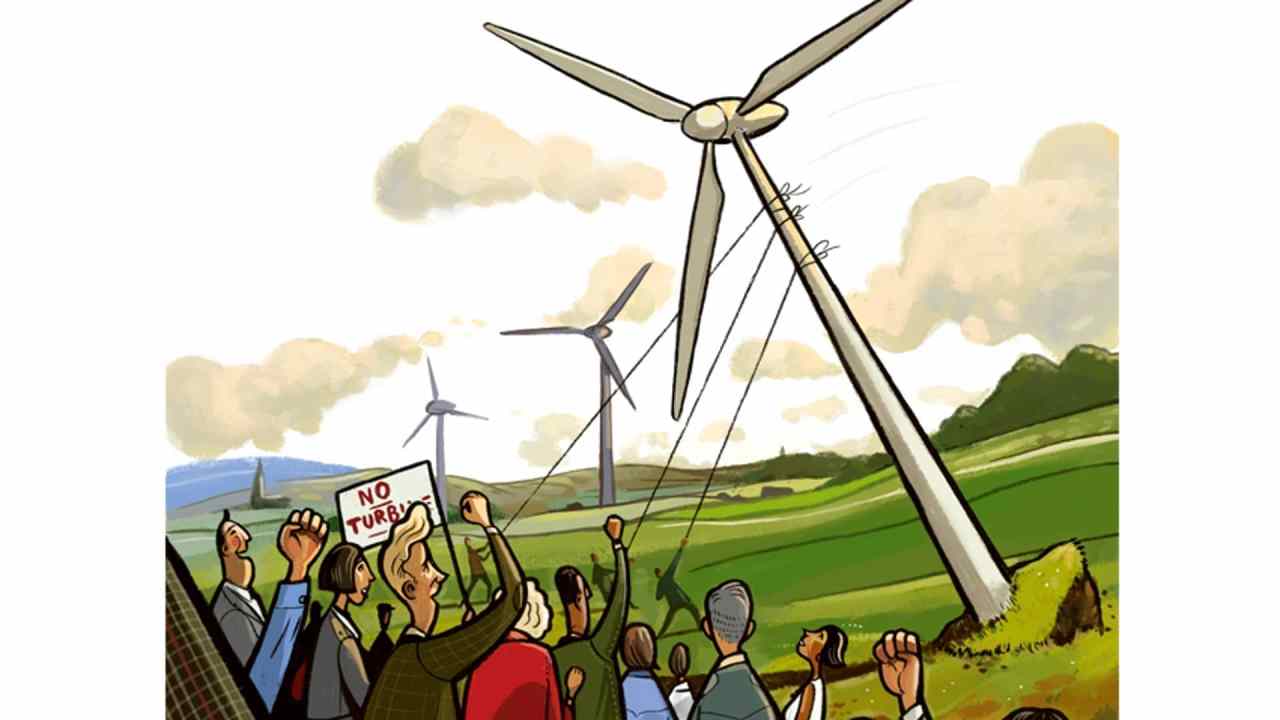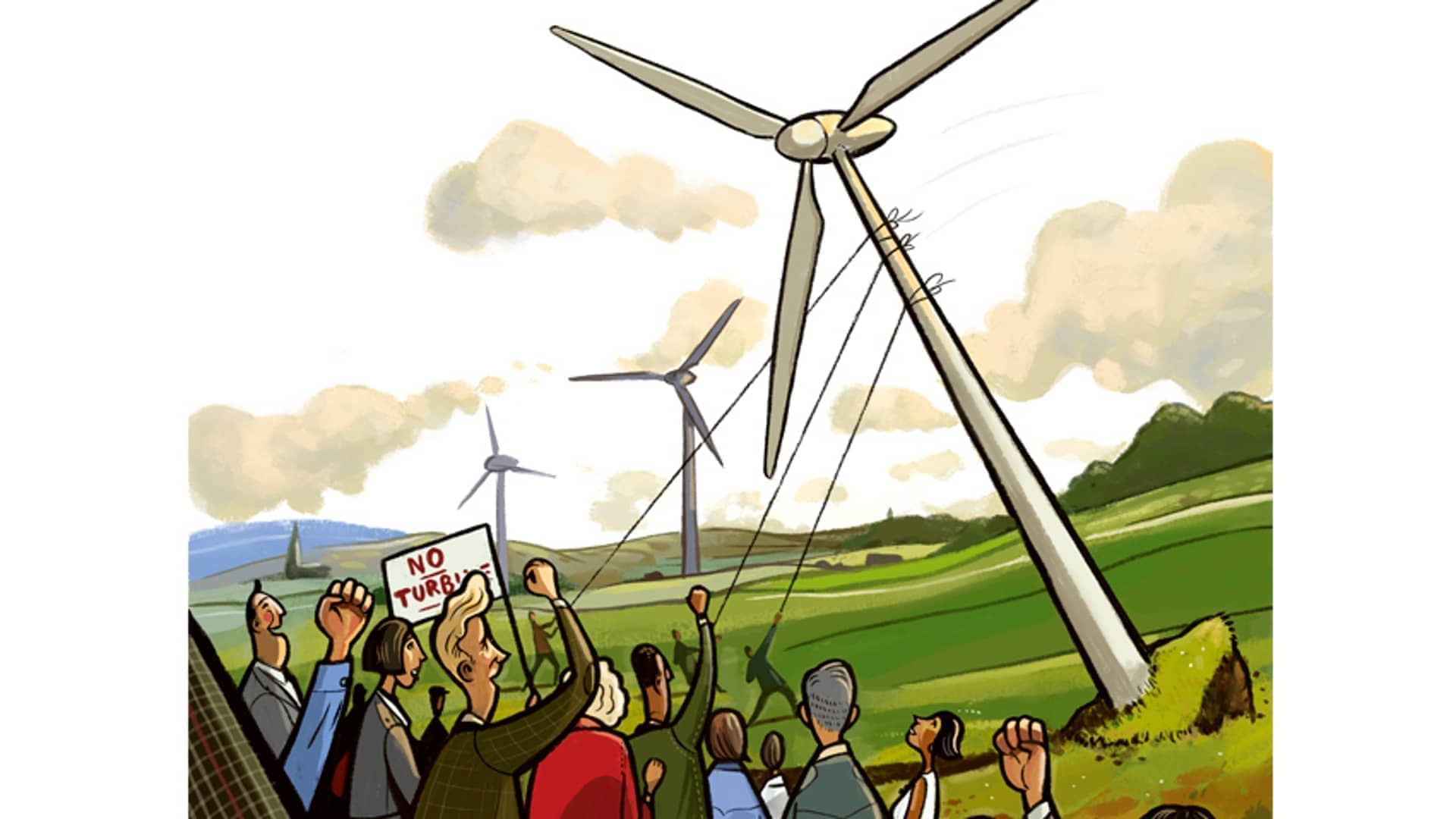Why has Britain suddenly been plunged into an energy crisis, with day ahead auction prices for electricity rising to over £400 per MWh, ten times what they were this time last year? The spike in global gas prices caused by economic recovery from Covid has been commented on often enough, as has the failure of Britain to maintain sufficient gas storage reserves – we have closed a large gas storage facility as other countries have been building up theirs’. So, too, we have learned of the failure of many smaller energy companies to hedge the prices of their energy, thus putting them at risk of spikes in wholesale prices.
Global wind speeds have been trending downwards for several decades
But there is one aspect to this crisis which has received rather too little comment: low wind speeds, which have reduced output from wind farms. While the current lull is chiefly a vagary of the weather, global wind speeds have been trending downwards for several decades, threatening to undermine an energy strategy which is over-dependent on wind power. According to the sixth assessment report of the Intergovernmental Panel on Climate Change, global mean land wind speed (excluding Australia) showed a fall of 0.063 metres per second per decade between 1979 and 2018.
We hear little about this observed trend. Is this because it runs contrary to the alarmist claim that we face a future of ever-stronger storms? In fact, the observational data shows not only a slight fall in mean wind speeds but also a reduction in the strength of storms right up to 60 degrees north – the latitude on which lie the Shetlands. Given there are relatively few human settlements north of this latitude it suggests that most places are facing a lower risk from damaging winds.
But low wind speeds are certainly a threat to the wind power industry. Danish wind energy specialist Orsted recently issued a profits warning partly as a result of lower-than-expected wind speeds. That wind energy has the problem of being intermittent has of course been known about since the beginning of the wind industry; it is obvious. But a generalised fall in yield from wind farms threatens to disrupt any energy policy that is over-dependent on wind.
No-one seems to be sure why global wind speeds over land are falling – whether as a result of changing atmospheric circulation, increasing urban development or whatever – but research at Germany’s Max Planck Institute has concluded that existing wind turbines themselves could play a serious role in lessening the wind power available to be extracted by future wind farms.
The theoretical study found that a turbine in an area covered with wind farms could be expected to generate only 20 per cent of the energy that an isolated turbine would produce. That is a seriously large reduction which raises the question: just how many wind farms can a country like Britain absorb before the turbines are all stealing power from each other, and are we doomed to suffer repeated energy crises thanks to our over-reliance on wind?








Comments